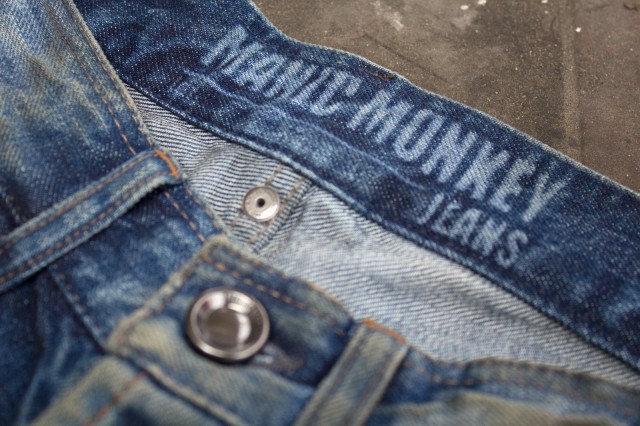 What happens when two denim veterans and good friends decide to start their own new brand and use all their experience and knowledge to create an individual look for each pair of jeans that they produce? That’s how the story of Amsterdam-based Manic Monkey Jeans begins. As the two founders Rob Dunk and Piero Turk put it, “In a world, driven by mass production and fakers, we strive to make the best jeans for the best denim shops. No short cuts or compromise but a true artisanal approach with respect for authenticity and heritage.” Rope Dye caught an interview with the Manic Monkeys.
What happens when two denim veterans and good friends decide to start their own new brand and use all their experience and knowledge to create an individual look for each pair of jeans that they produce? That’s how the story of Amsterdam-based Manic Monkey Jeans begins. As the two founders Rob Dunk and Piero Turk put it, “In a world, driven by mass production and fakers, we strive to make the best jeans for the best denim shops. No short cuts or compromise but a true artisanal approach with respect for authenticity and heritage.” Rope Dye caught an interview with the Manic Monkeys.
Manic Monkey jeans are produced in a small workshop in Italy where craftsmanship in the finest tradition is still celebrated. Each pair is carefully finished by hand to create a unique and individual look. Dunk and Piero take great pride in designing products that can, “stand the test of time and become a friend for life.”
You both have an enormous experience in the denim industry (together over 50 years). Can you tell a bit more about your background and how you got into the denim business?
P: “I started working in the ‘denim world’ in 1983, but before that I worked as a clerk in my mother’s shop, one of the first jeans shops in Italy, in 1969. Back then, in 1983. I was fortunate enough to work with Adriano Goldschmied and Claudio Buziol, owner of Replay, who unfortunately passed away in 2005. They showed me the roots of denim, USA, Japan, vintage and second hand world. And the determination to keep on developing new products and never being satisfied. It’s been many years already since I opened my design studio, ENVELOPE srl, and during the last 15 years I have been working for the most important jeans brands around the world.”
R: “I got hooked on denim when my father took me to De Rode Winkel in Utrecht on my 7th birthday in the 60s and bought me my first pair of jeans (dry Lee 101). This store was a traditional workwear store selling Lee, Levi’s and Wrangler. Little did I know at the time that this store would be the start of my career in denim. Later, in the early 80s I got the chance to become manager and buyer of De Rode Winkel and the store became an international reference selling the best brands from Europe, the U.S. and Japan (Diesel, Fiorucci, Liberto, Levi’s, Lee, Wrangler, Edwin, Big John and many more).”
R: “After learning all the ins and outs of the denim trade, I started G-Star together with Jos van Tilburg, which was a great experience as well. Next I moved to London to become creative director of Pepe Jeans. After 2 years, we decided to move the office from London to Amsterdam. We hired a lot of young talent that would eventually turn Amsterdam into the denim hub it has become: Jason Denham (Blue Blood, Denham), Tony Tonaer (Kyuchi, K.O.I.), James Veenhof (Jeansschool, Frontier), Steve te Pas (Evisu, Blue Blood, Good Genes) and Boy Bastiaens. Soon afterwards I spent a great deal of time in New York for Tommy Hilfiger and initiated Hilfiger Denim. After that I worked as a consultant for a few European brands until I got the chance to work with Karl Lagerfeld in Paris on his designer jeans. And now it’s Manic Monkey, which I started together with Piero. I worked with Piero on most of the brands I was involved in over the last 18 years. Getting information about the denim business has become a sort of second nature. We travel a lot across the globe, visit trade shows and fabric fairs, but most of all we act on our gut feelings.”
Besides Manic Monkey jeans you are still very much active within the denim industry worldwide, aren’t you?
P: “I do freelance design for other denim brands in Japan, Europe and the US.”
R: “At the moment my focus is on Manic Monkey, but it’s always great to work on new projects and ideas with like-minded people.”
What made you decide to start Manic Monkey Jeans?
P: “Mostly the desire to keep feeling the pleasure developing what I like, together with a friend (Rob).”
R: “That was spring 2012 when Piero visited me in Amsterdam: we were checking out the local denim scene and noticed that there wasn’t a lot of innovation in washes, especially in the men’s denim market. The big commercial brands are playing it safe due to the economic outlook and are focusing mainly on price and low cost production markets where it’s impossible to create ultra-premium washes like in Italy or Japan. The smaller, independent brands are mostly producing dry (selvage) denim, which we love, but we saw an opportunity in premium washed denim. We are obsessed with how denim looks after it’s been worn for 10 or 20 years and that’s what we want our jeans to look like. So, one evening, after a few bottles of red wine, we decided to start our own brand.”
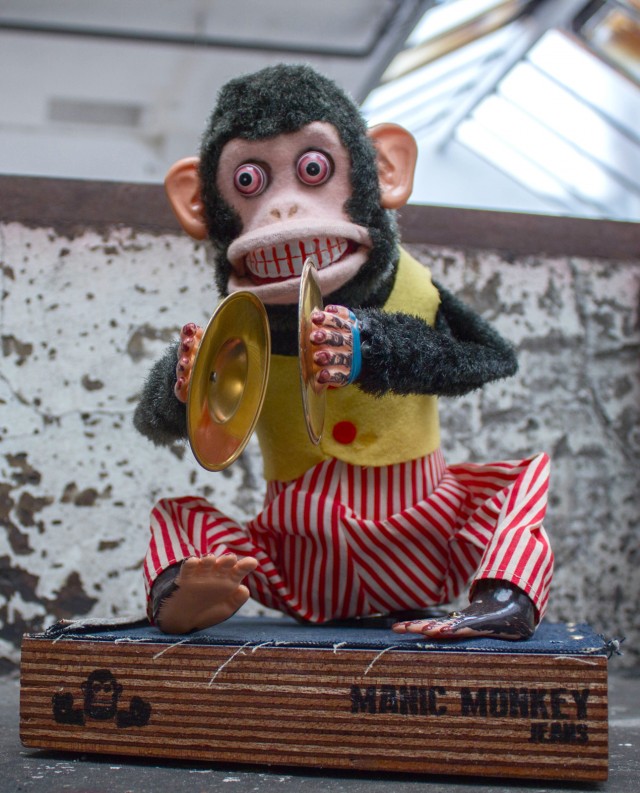 Why the Manic Monkey?
Why the Manic Monkey?
R: “The name comes from an old Japanese toy I had when I was a kid. It was produced by the Daishin company in the 50s, an ugly looking toy, wearing railroad striped pants. It was first seen in the movie “Rebel Without a Cause” with denim icon James Dean. I just thought it was a cool name with a cool reference.”
You aim to make the best jeans for the best denim shops. How do you achieve that?
R: “Through a lot of trials and errors. We almost take a microscopic look at new washes we create and go back and forth until we’re satisfied, which usually takes a long time, and then we hope people recognize all the effort we put in.”
Where do you start creating and developing a pair of jeans?
P: “I work in my studio and perform my wash development ideas in a small Italian laundry. Not a famous one like others, but in my opinion the best one.”
R: “Most brands develop their washes by looking at different fabric mills, which already have washed examples and make their selection based on the price they can afford. We, on the other hand, start with what we want the final product to look like; we take an old pair of vintage jeans that we like and sometimes combine it with certain parts of another pair and imag what it could look like. Next we look for a fabric with a similar construction, weight and shade and emulate the wear and tear of the original. For some of the washes it takes us more than a day to achieve the end result. The washes are carried out completely manually, which gives each pair a unique look.”
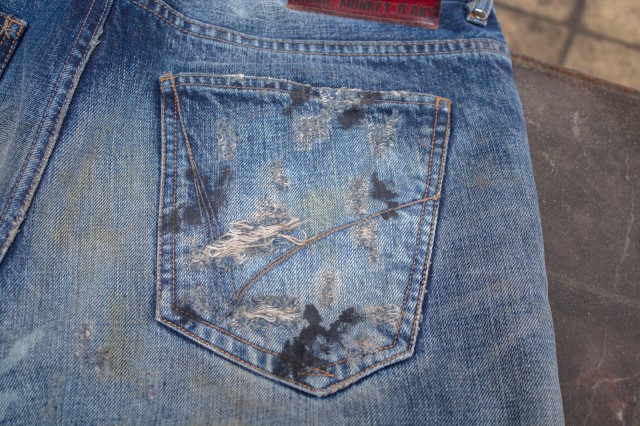
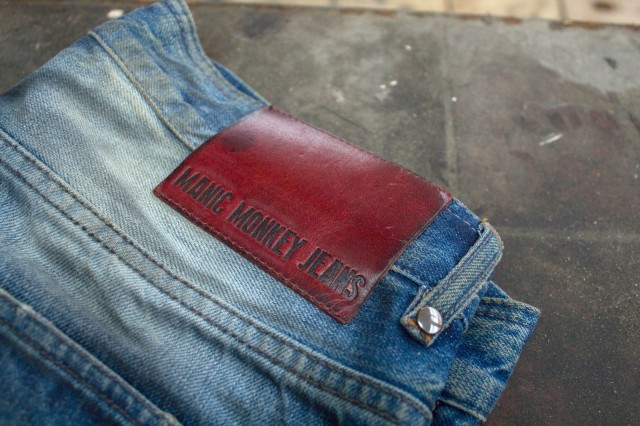 The Manic Monkey jeans already have a unique and individual look. What inspires you in the creation of your models?
The Manic Monkey jeans already have a unique and individual look. What inspires you in the creation of your models?
P: “Historical roots of denim. I love photography and I especially get inspiration from the work of American photographers of the 30s and 40s, such as Walker Evans, Dorothea Lange, Russell Lee, Arthur Rothstein and many others. I get inspired to create a modern denim based on those images*. The US was built by men and women wearing denim and now it’s being destroyed by men wearing grey suits. In a way my work is a kind of tribute to those men and women.”
R: “Most of our inspiration comes from Piero’s huge private collection* of vintage jeans, but also from what we come across during our travels. (*Piero’s blog with inspiring images can be found at tumblr.”
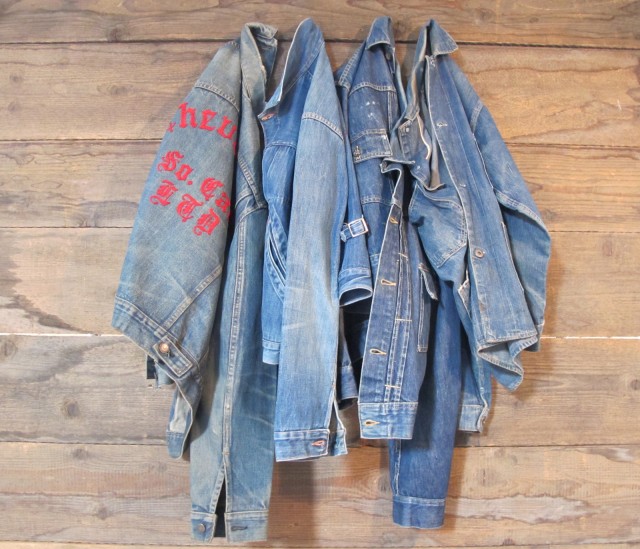
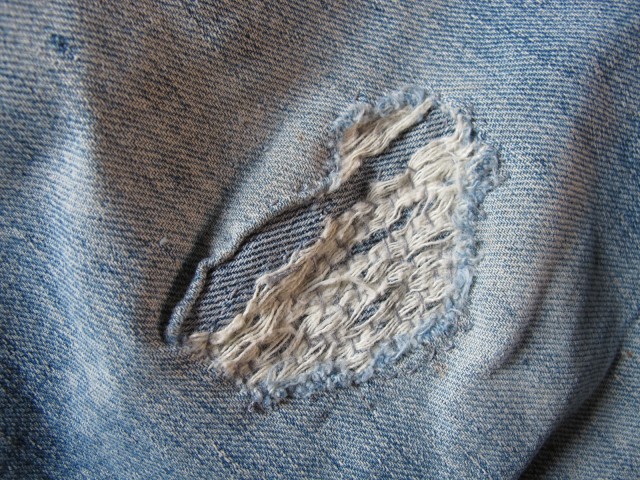
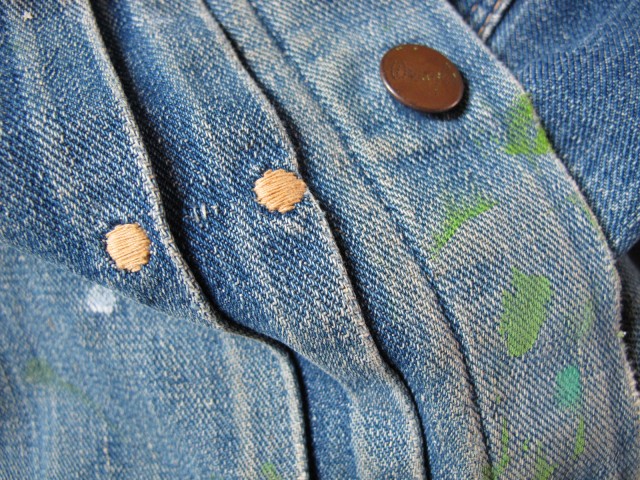
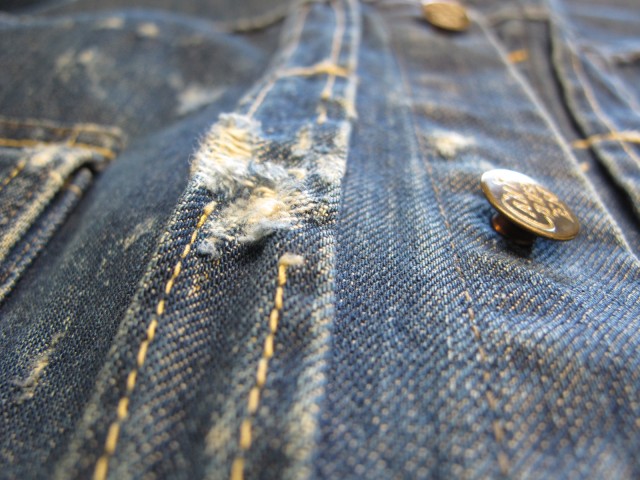 How many models/washes does your collection contain?
How many models/washes does your collection contain?
“We only make two fits: a regular straight leg and a slim fit; that’s all we need. In our first collection we had six different washes; for the next collection we will use some of them and add new washes on top of that. How many we don’t know yet; we’re constantly developing and will probably end up with way too many and make a selection of the most unique ones.”
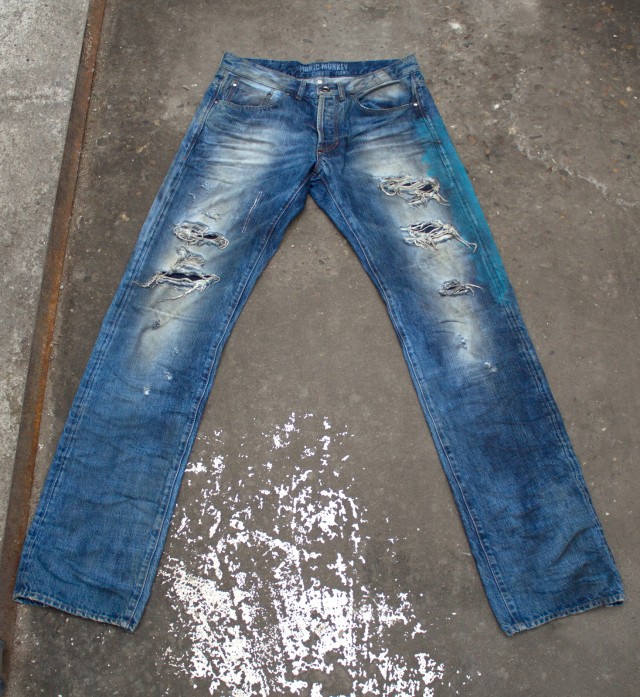
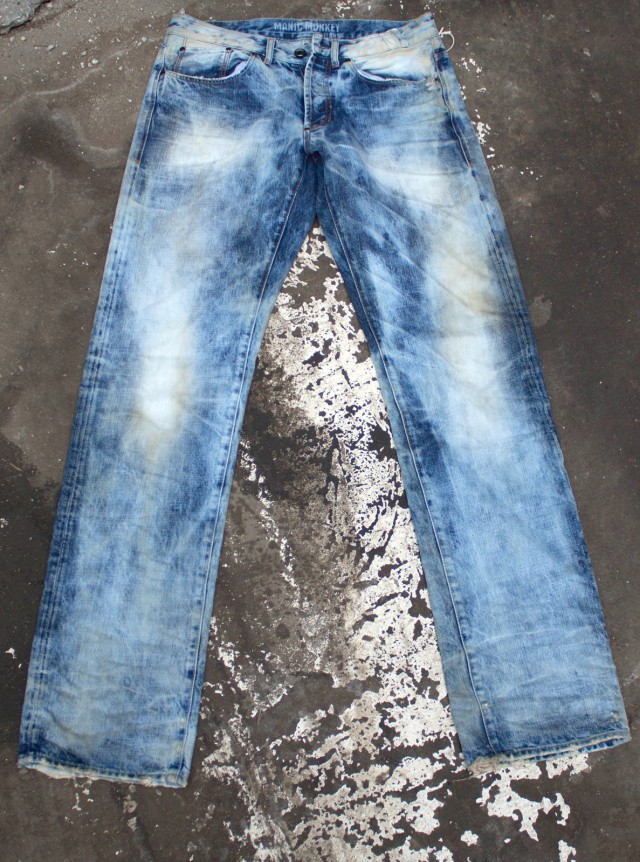
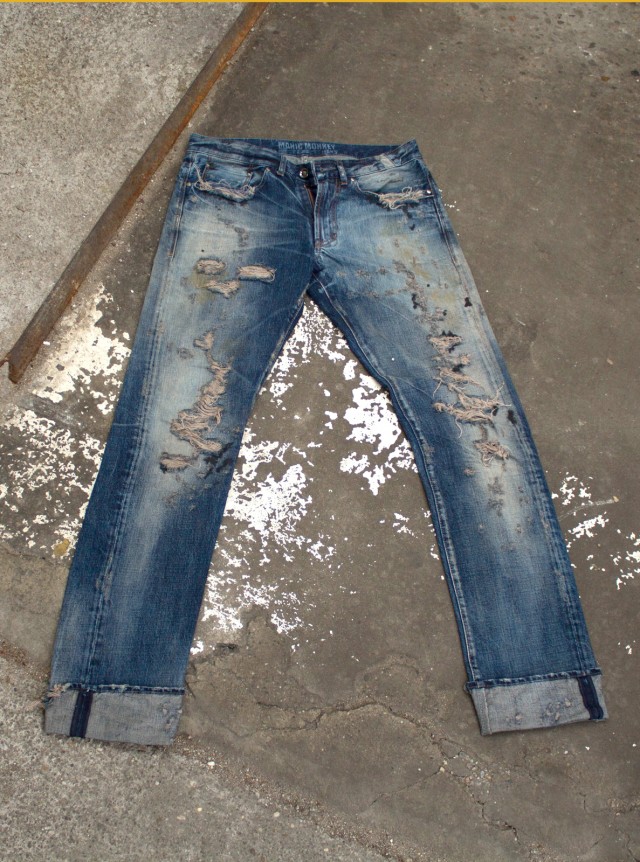 There is a lot to do on all kinds of selvage denim, Japanese, American, but what characteristics you like on the fabric?
There is a lot to do on all kinds of selvage denim, Japanese, American, but what characteristics you like on the fabric?
P: “I like the deep dark indigo color of Japanese denim.”
R:” Sure, I love the history and authenticity of true selvage denim, old narrow width shuttle looms, different constructions, the Japanese influence and all of that. But what I appreciate most is that denim is truly unique in the sense that it’s the one product that cuts through all social barriers, from presidents to street punks, from the boardroom to the construction site, we all wear denim and we always will.”
And what is the difference between the European, American and Japanese market?
P: “European leading denim brands have huge collections and a lot of different styles. They’re working a lot with different designs, pockets, labels, details, washes … sometimes jeans look like Xmas trees. American brands are more basic, and focus much more on fabric innovations. The Japanese brands, on the other hand, are ‘purer’.”
R: “Europe is interesting because you can find almost everything, from cheap and ugly to nice and premium. All the big international brands dominate the high streets, but every country has its own local heroes. Each market has its own sensibilities when it comes to denim. Sometimes you can tell where people come from just by looking at their jeans. America is much more uniform; the market is dominated by the big department stores which all sell the same. The brand names are different, but they all make the same product. Once a brand is successful with a new fit or fabric, everybody will offer it. Especially the men’s market is very basic and boring. Luckily there are some smaller brands around in N.Y. and L.A. which stay true to their identity and find their way into the few independent stores that are left. Japan has its own denim culture. They seem to appreciate authenticity as well as fashion, low-tech and high-tech and they mix it all up. There are so many small local brands around; a single shop can have its own denim brand and there are lots of them.”
You both travelled a lot. What do you think is the most inspiring denim city or place on earth?
P: “Los Angeles and Tokyo.”
R: “Denim is a global product and everywhere you can see the best or the worst; sometimes you find great ideas in unexpected places. Tokyo is still a great place as is Los Angeles for vintage finds. Lately, Amsterdam is getting more interesting as well.”
How do you wear and treat your own dry denim?
P: “I just wear raw denim.”
R: “I have a few pairs that I really treasure; they’ve been with me for a long time and have become sort of a blueprint or diary of my life so far. Sometimes, when I find a pair that I really like, I buy two; one I never wash, the other one I do, just to see how they individually change, the same but totally different. I used to do crazy things like bury them in the garden for a year or put a brick inside and let them sink to the bottom of the canal, just to see what happened. Nothing much, it’s a sturdy fabric.”
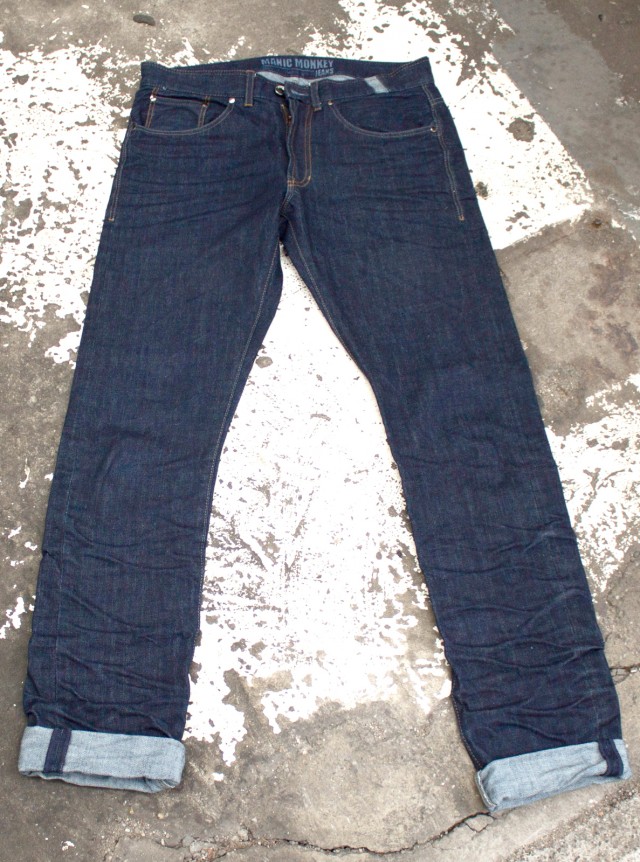
How do you see the denim evolving?
P: “On one side going more and more in a pure and high quality direction, on the other side getting cheaper and looking a bit tacky.”
R: “Denim can be on trend or off trend, but will always be around no matter what fashion dictates. Every single pair of jeans becomes unique once it has been worn over a longer period of time so there is always something new to be found. And as much as we appreciate heritage denim, also new technologies in weaving, dying and blending will have their impact in the future.”
Where will Manic Monkey jeans be five years from now?
P: “I don’t know. I hope it will be known as a ‘special brand’.”
R: “A brand big enough to have a strong and steady business, employing young talent who share our passion but small enough to stay independent innovators.”



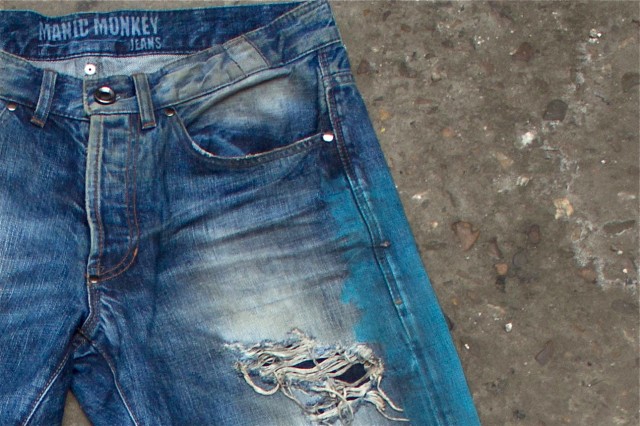
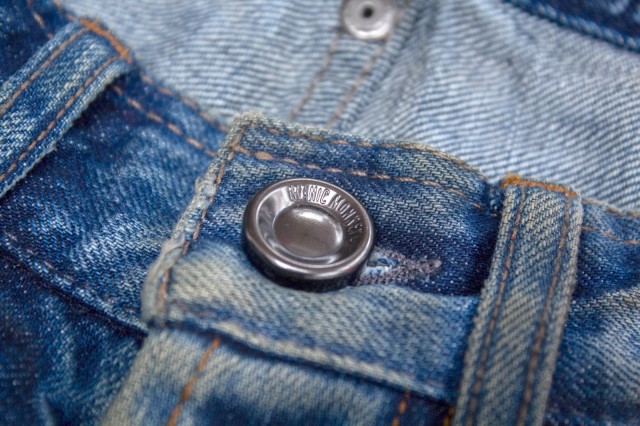
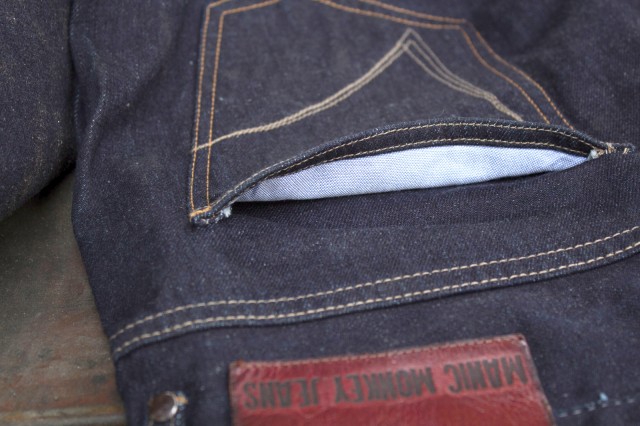
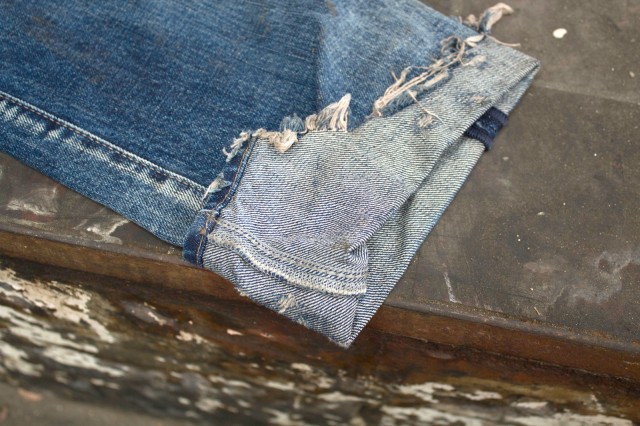
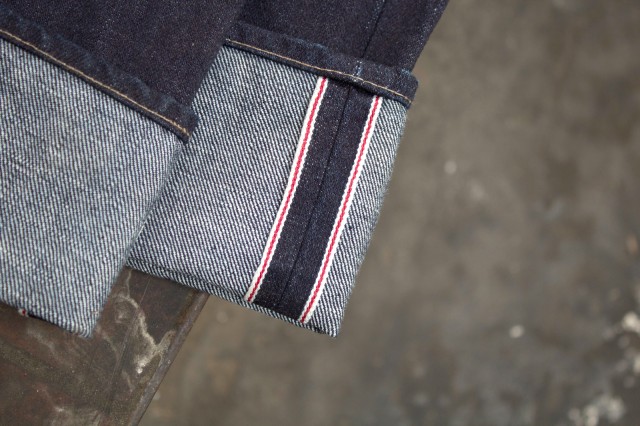
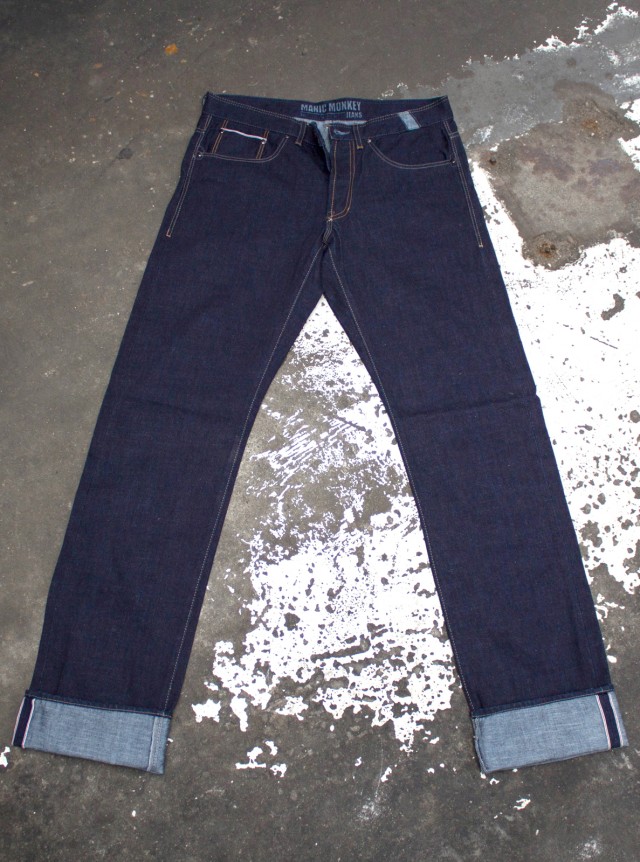
24 comments
great read once again! inspiring story
generic allergy pills prescription vs over the counter most recommended allergy medication
Tant qu’il y a un réseau, l’enregistrement en temps réel à distance peut être effectué sans installation matérielle spéciale.
Lorsque vous oubliez le mot de passe pour verrouiller l’écran, si vous n’entrez pas le mot de passe correct, il sera difficile de le déverrouiller et d’y accéder. Si vous trouvez que votre petit ami / petite amie est suspect, vous avez peut-être pensé à pirater son téléphone Samsung pour obtenir plus de preuves. Ici, nous vous fournirons la meilleure solution pour déchiffrer le mot de passe du téléphone mobile Samsung.
Wow, superb weblog format! How lengthy have you ever been blogging for?
you made running a blog look easy. The total look of your web site is magnificent, let alone the content!
You can see similar here sklep internetowy
online pharmacy india https://indiaph24.store/# india pharmacy mail order
indian pharmacies safe
mexican drugstore online: cheapest mexico drugs – mexican pharmaceuticals online
https://indiaph24.store/# world pharmacy india
https://canadaph24.pro/# pharmacy canadian
mexican pharmaceuticals online medicine in mexico pharmacies mexican online pharmacies prescription drugs
indian pharmacy online https://indiaph24.store/# п»їlegitimate online pharmacies india
buy prescription drugs from india
purple pharmacy mexico price list: Mexican Pharmacy Online – medication from mexico pharmacy
cost of cheap propecia tablets: buy propecia – generic propecia price
nolvadex steroids tamoxifenworld lexapro and tamoxifen
https://finasteride.store/# propecia cheap
tamoxifen for gynecomastia reviews femara vs tamoxifen tamoxifen warning
https://nolvadex.life/# tamoxifen mechanism of action
buying cheap propecia without insurance: cost of propecia – order cheap propecia no prescription
https://ciprofloxacin.tech/# cipro
get cheap propecia without insurance buy propecia now propecia rx
buy misoprostol over the counter: cytotec buy online usa – Cytotec 200mcg price
lisinopril tablet lisinopril prinivil zestril can you buy lisinopril
http://ciprofloxacin.tech/# ciprofloxacin order online
http://nolvadex.life/# tamoxifen and depression